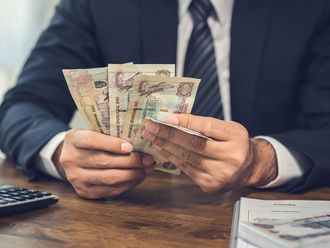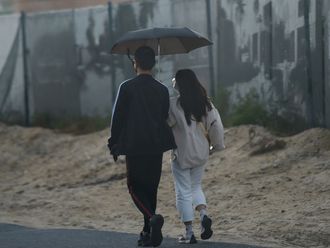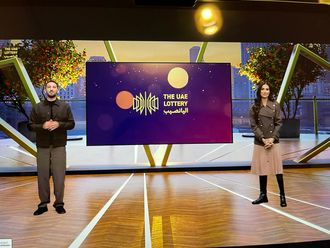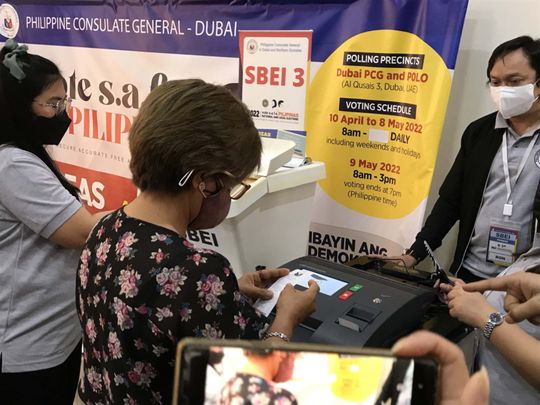
Dubai: The Philippine Consulate General (PCG) in Dubai is all set for the month-long Philippine overseas voting, following the successful conduct of final testing and sealing (FTS) of electronic vote counting machines (VCMs) at the consulate grounds on Saturday.
Registered Filipino voters may cast their ballots starting April 10 (8am, UAE time) until May 9 (3pm, UAE time – in sync with the closing of polls in the Philippines).
What are the voting for?
The next Philippine general elections will select the successor of President Rodrigo Duterte. Overseas Filipinos will also choose the next vice-president, 12 senators and a party-list representative.
“We are ready for this election. All 10 VCMS that will be used in Dubai are working properly,” said vice consul Elizabeth Picar Ramos, acting head of post at PCG, and one of the chairpersons of the Special Ballot Reception and Custody Group (SBRCG), tasked to receive and take custody of the ballots and other election materials.
Highest number of voters
Ramos noted there are 1.7 million registered overseas Filipino voters globally and the Philippine mission in Dubai and the northern emirates has the highest number of registered voters at 191,779 Filipinos.
Dubai PCG earlier hosted the training on automated election system, attended by participants from 10 Philippine foreign service posts in the Middle East, including Abu Dhabi, Amman, Beirut, Dubai, Jeddah, Kuwait, Manama, Muscat, Riyadh, and Tel Aviv.
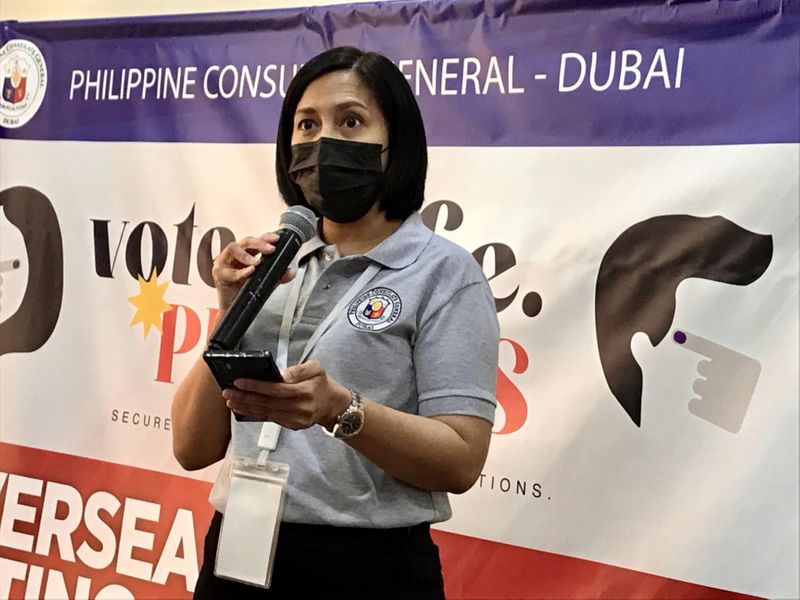
According to PCG, “the training highlighted the role and responsibilities of the members of the election board and poll watchers, including the procedures for personal and postal voting, post counting procedures, and VCM technical procedures”. Members of the Special Board of Election Inspectors (SBEI) were tested of their knowledge of the technical procedures in handling and operating the VCMs and staff from Dubai PCG were among the top participants who gained the highest scores in the exam.
Security and accuracy
The FTS on Saturday checked the security and accuracy of the VCMs using test ballots that were fed to the machines. SBEI members, poll watchers and volunteers who took part in the mock elections checked if the machines accurately read and registered the test ballots. The FTS is the last preparatory step for the overseas voting.
Dubai-based Filipino expat Michael James Rojas, who took part in the mock election and testing of VCM, told Gulf News he was satisfied with the entire procedure. Bryan Cabugsa, poll watcher for progressive partylist group Bayan Muna, said he was also satisfied with the process and conduct of mock voting.
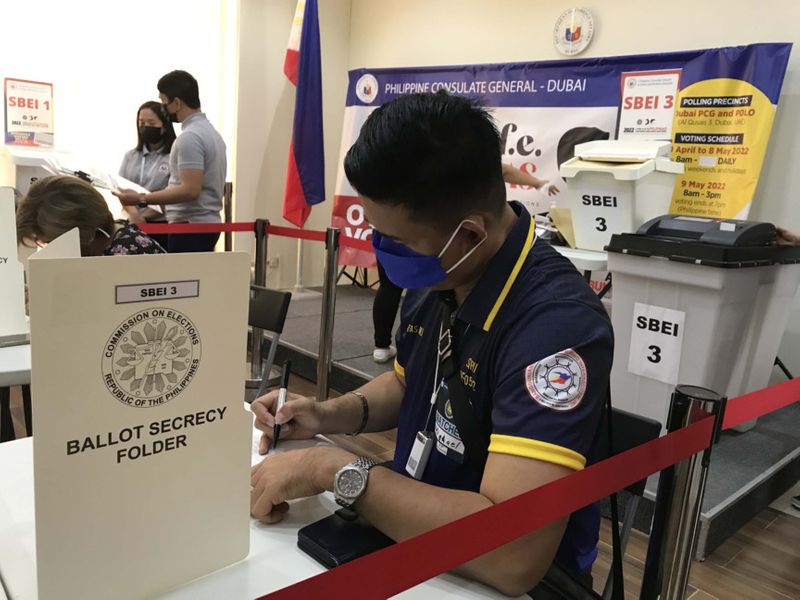
Check list of voters
Meanwhile, Ramos reminded her kababayans (countrymen) to check to Certified Lists of Overseas Voters (CLOVs) and verify if they are registered to vote before heading to the polls.
The CLOVs, which can be found on the Philippine Consulate website, is the list of overseas voters whose applications to vote have been approved by the Resident Election Registration Board (RERB) under the Philippine Commission on Elections (Comelec).
Ramos also called on her kababayans to vote early and not wait for the last minute. She is confident of high turnout of voters this year. Back in 2010, 12 per cent or 3,693 out of 30,679 registered voters cast their vote. The number of voters grew tenfold in 2016, where 37,950 or 31 per cent of the 122,953 registered Filipinos went to the polls in Dubai.





